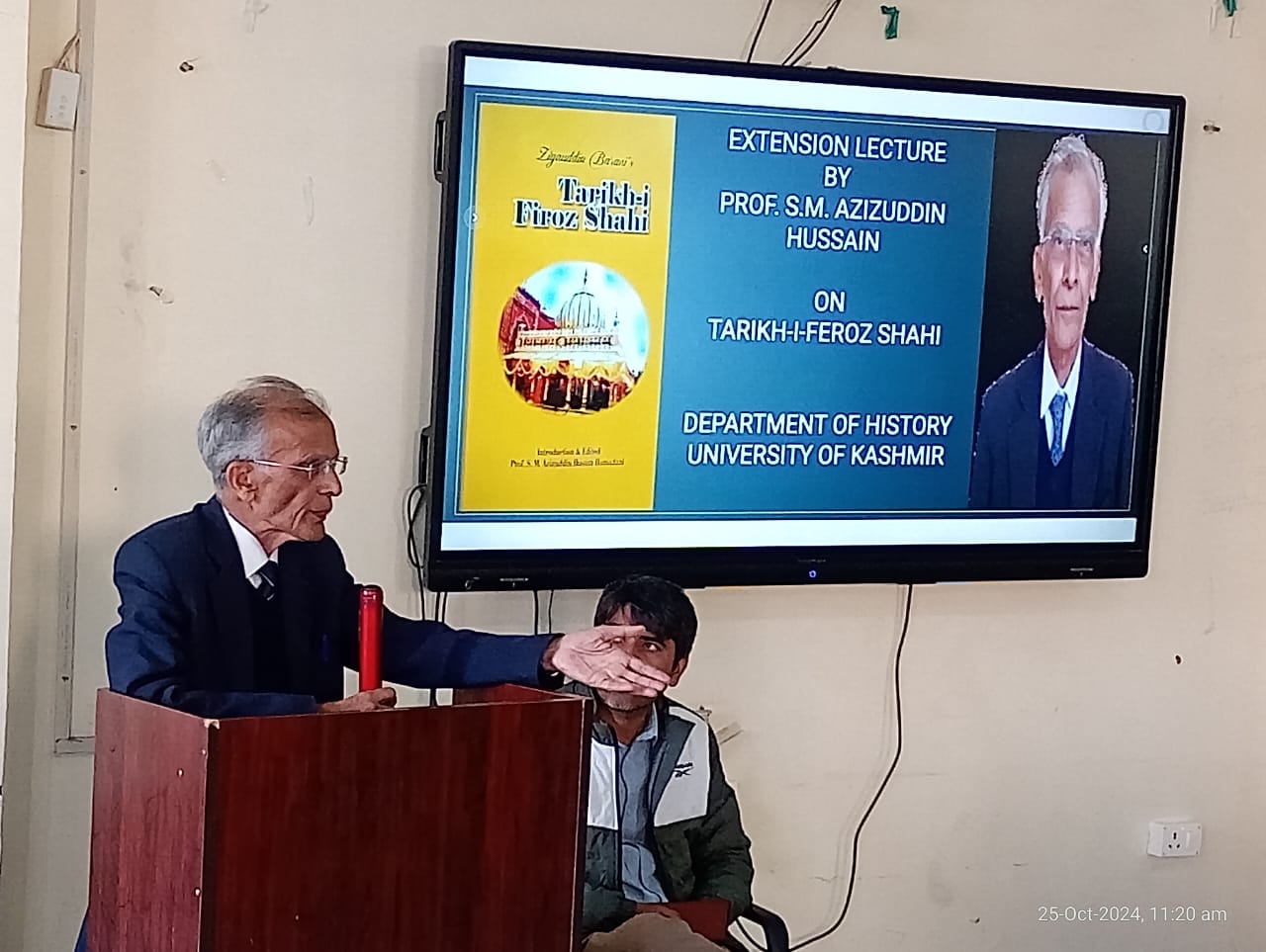Tarikh-i-Firozshahi, offering insight into the political, social, and cultural life of medieval India, as well as the complex dynamics of the Delhi Sultanate under Sultan Firoz Shah Tughlaq.
He explored Barni's critical perspectives on governance, the role of religion in politics, and his reflections on moral and ethical leadership within the Sultanate. Prof. Azizuddin also examined the ways in which Tarikh-i-Firozshahi has influenced subsequent historical writings and its relevance in understanding the broader historiography of medieval India.
The talk, part of the university's ongoing academic initiatives, was followed by an interactive session where participants discussed the impact of medieval historiography on contemporary historical scholarship.
Prof. M.Y. Ganaie, head of the Department, on behalf of the Department of History and University of Kashmir expresses his gratitude to Prof. Azizuddin for sharing his expertise, which significantly enriched the academic discourse on medieval Indian historiography.
'> 
He explored Barni's critical perspectives on governance, the role of religion in politics, and his reflections on moral and ethical leadership within the Sultanate. Prof. Azizuddin also examined the ways in which Tarikh-i-Firozshahi has influenced subsequent historical writings and its relevance in understanding the broader historiography of medieval India.
The talk, part of the university's ongoing academic initiatives, was followed by an interactive session where participants discussed the impact of medieval historiography on contemporary historical scholarship.
Prof. M.Y. Ganaie, head of the Department, on behalf of the Department of History and University of Kashmir expresses his gratitude to Prof. Azizuddin for sharing his expertise, which significantly enriched the academic discourse on medieval Indian historiography.
'>View Gallery